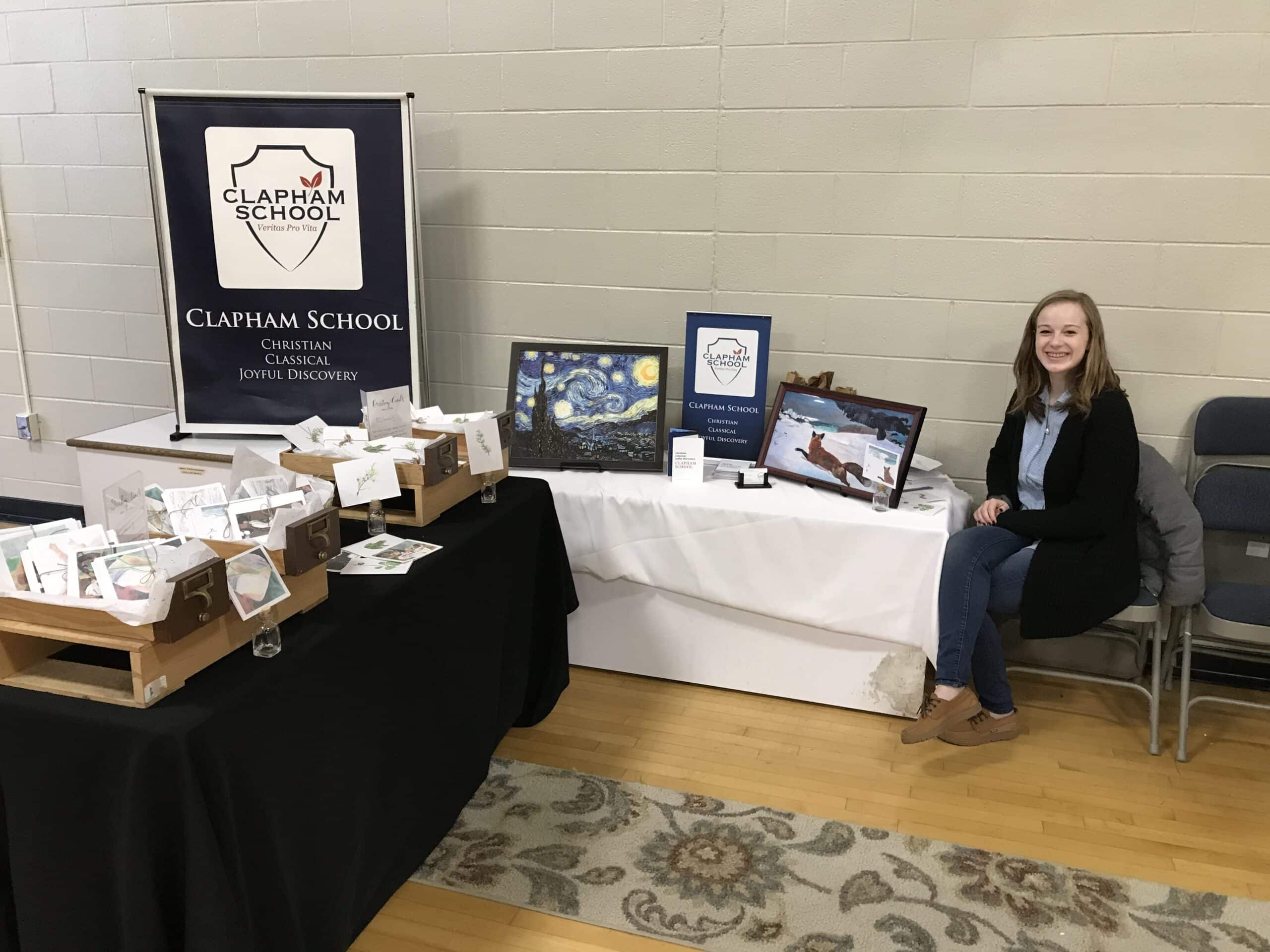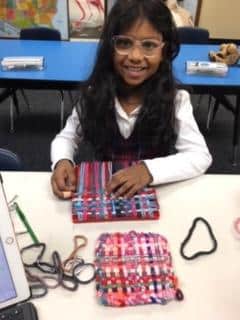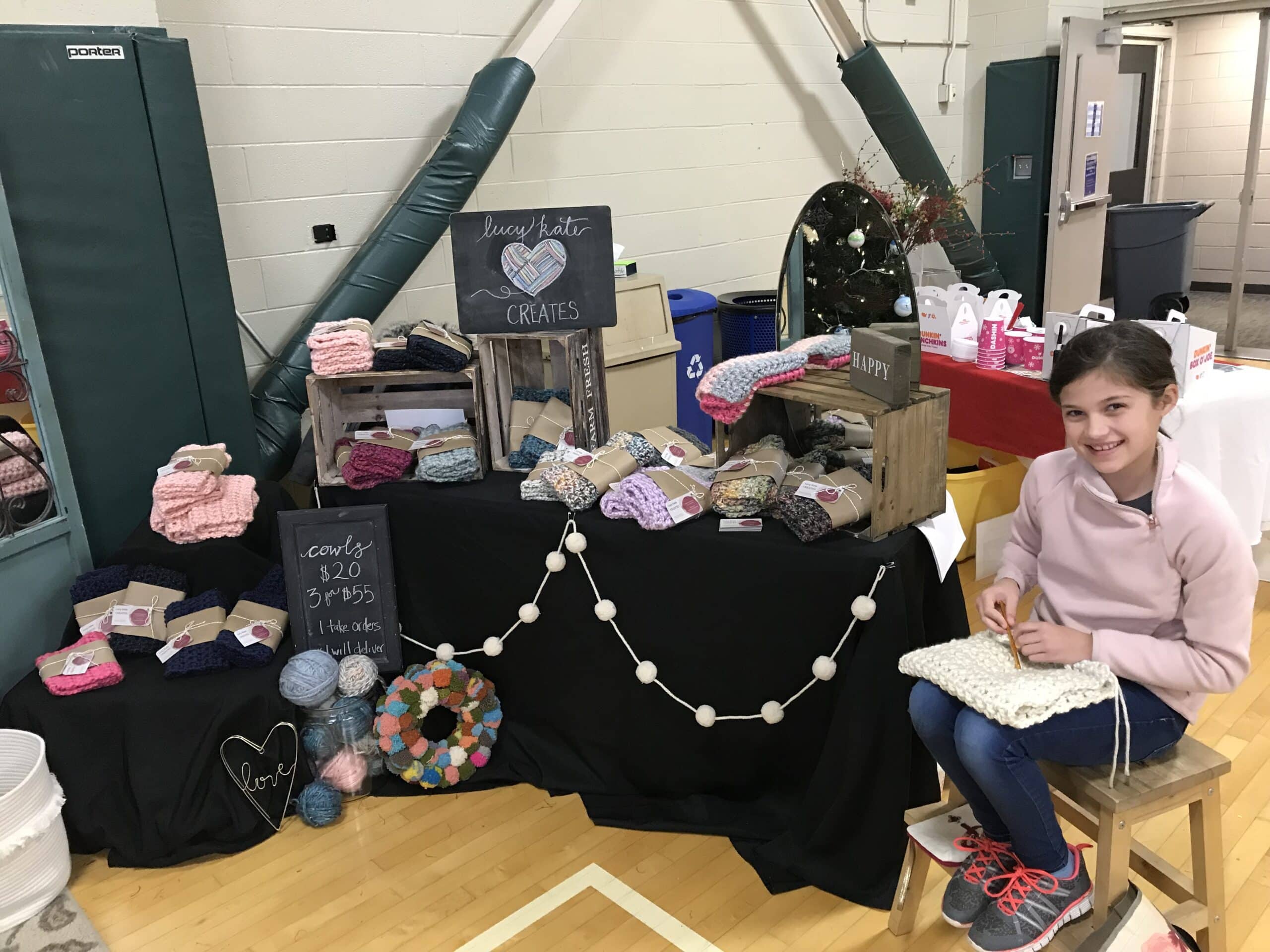Children are full of curiosity. They wonder how things come apart, how they fit together and how they are meant to work. Charlotte Mason states that,
“Children are born with all the curiosity they will ever need. It will last a lifetime if they are fed upon a daily diet of ideas.”
-Charlotte Mason
Children who are given opportunities to discover, create, and bring their ideas to fruition should also be provided the chance to share their creations with the world. In their efforts to share their creations, children can be taught the basics of business. It’s just possible the two companions of curiosity and business smarts will create in your child an entrepreneurial spirit.
Forbes journalist, Jacquelyn Smith, defined this entrepreneurial spirit as
“…a mindset. It’s an attitude and approach to thinking that actively seeks out change, rather than waiting to adapt to change. It’s a mindset that embraces critical questioning, innovation, service, and continuous improvement.
By encouraging critical questioning, innovation, service, and continuous improvement in our curious children, we can help them develop a mindset that will help them approach life with the heart of an entrepreneur. Let’s take a look at each of these developmental steps.

1. Critical Questioning
The process of asking questions that require more than a yes or no is crucial to the development of young minds. For example, a young child may struggle to build a tower out of blocks because they keep placing the smallest blocks on the bottom. Yet, without adult intervention, the child will eventually question their approach and place the biggest blocks first. Their ability to problem-solve has just been strengthened.
Critical questioning is an integral part of the teaching philosophy at Clapham School. Recently students were able to share their artwork at The Wheaton Mom’s Artisan Market. There were two booths: one filled with watercolor cards made by our lower school students, another by a student who has developed the skill of knitting.
Students naturally had critical questions. They wanted to know how to attract people to their booths. After brainstorming they decided to stand in the front of the booth and be visible. The students also decided to greet everyone with a friendly smile. Next they thought through selling their items and came up with a script that gave them the confidence to close the sale. They decided to say, “Would you like to take a pack of these home with you today?” Asking questions and working towards solutions made the market a rewarding experience.
2. Innovation
Innovative people find alternative paths to accomplish a goal. When a curious child sets their mind to a task they are passionate about – figuring out how to open the freezer door to get to the ice cream for example – they will overcome the fact that they are too short to open the door by climbing on a stool and then the counter to get what they want. This type of innovation can be directed to solving bigger and more complicated problems.
I teach weaving in my Kindergarten class for many reasons, and innovation is one of them. My curious students want to create the projects that I show them. They are determined to learn the patterns and create ways to accomplish it. One student got to the end of the loom and could not grasp the loops well enough to push them over and under. Instead of giving up, I asked the student to think about another way. Before long, I saw little fingers pulling every other loop off its post, laying their cross loop under it and securing the loop on the post again.
3. Service
A true entrepreneur is not merely content with the pursuit of financial success. Children demonstrate this all the time. Parents organize a lemonade stand, thinking they will inspire their children to make something in order to earn money, only to discover the kiddos drinking the product and giving it away to their best friends for free. The reason is found in their heart of service. They want to make the lemonade and serve the lemonade because it makes people happy. What if we gave our curious children the chance to serve others with their creations?
Each year Clapham School hosts a Grandparents Day. As part of the celebrations of the day, we give beautiful watercolor cards based on the children’s artwork to our guests. Another student in our school knits scarves and donates a portion of her earnings to charitable causes. These small acts of kindness and service create a space for our students to experience the joy of creating and giving, fostering a stronger desire to do it again.
4. Continuous Improvement
Children develop resilience through failing and trying again. This trial and error cycle leads to the development of a growth mindset. Failing can lead entrepreneurs to ask critical questions and to innovate solutions to problems. The child who takes up a few pieces of wood, a hammer, and some nails to build a birdhouse may find success elusive at first. Encouraging the child to ask why the slanted roof did not fit the straight-edged pieces of wood will help them to innovate and therefore improve. Working through the failure to complete a finished product will move the young adventurer’s heart to value hard work and effort.
The lesson of failing and working towards continuous improvement became clear on day two of our school’s sewing club. Students eagerly set their pinned material under the foot of the machine and chatted as they sewed. A lack of focus, however, created seams that were not straight. The lead teacher took the opportunity to demonstrate a seam ripper. As she cheerfully took apart the student’s work, she said, “This is just part of sewing, we make mistakes and begin again.” Each student accepted their fate and sat down with all seriousness to focus, once again, on their task.
It’s true that watercolor cards, knitting, weaving, birdhouses, and sewing may not change the world. But allowing students to begin with these small age-appropriate tasks just may result in adults willing to ask critical questions, innovate, serve, and move towards continuous improvement. Who knows what impact they will have on the world as they grow their entrepreneurial spirit?
{{cta(‘dd4bc18c-e0a4-4d43-89ab-4434a07e2d80′,’justifycenter’)}}
{{cta(’58d7773a-9599-45cc-b5b7-cde84c548430′,’justifycenter’)}}



